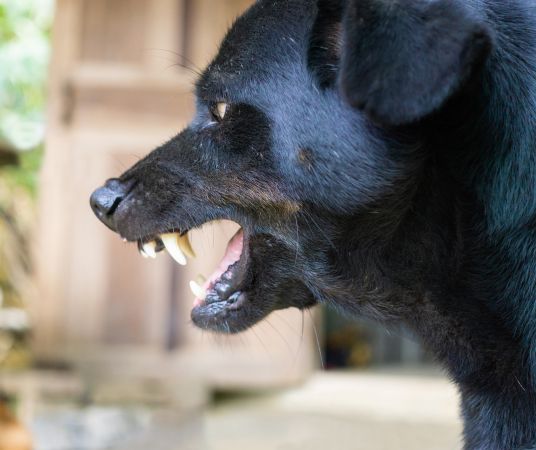
Determining Fault After a Dog Bite in Wisconsin
Posted On: June 16, 2025This content has been reviewed by Brian P. Hodgkiss
A dog bite can leave more than just physical scars. It can lead to emotional trauma, expensive medical bills, and long-term complications. Fortunately, Wisconsin law gives victims strong legal rights.
Here’s what you need to know about how fault is determined and how an experienced Appleton dog bite injury lawyer can help you recover compensation for your injuries.
Understanding Dog Bite Laws in Wisconsin
Wisconsin follows a strict liability rule for dog bites. Under Wisconsin Statute § 174.02, a dog owner is automatically responsible if their dog injures someone, whether through a bite or other aggressive behavior, regardless of whether the owner knew the dog was dangerous.
As long as you were legally on the property of the incident and not provoking the dog, the owner is typically liable for damages, including medical bills, lost wages, scarring, and emotional distress. If the dog had previously bitten someone or was known to be dangerous, the victim may be eligible for twice the standard compensation.
Here’s how it works:
- First Bite: The owner is strictly liable for medical bills, lost wages, pain and suffering, etc.
- Prior Bite: If the dog has bitten someone before, breaking the skin and leaving a scar, and the owner failed to take proper precautions against future bites, the victim may be entitled to double the normal compensation.
The rule penalizes negligent owners who fail to prevent further attacks once they know their dog poses a risk.
Common Defenses in Dog Bite Cases
While Wisconsin law generally supports dog bite victims, owners may attempt to limit or avoid liability by presenting certain legal defenses. The most common include:
- Provocation: If the dog owner can prove that the victim provoked the animal by hitting, teasing, or threatening it, liability could be reduced or even denied. However, this defense must be backed by credible evidence.
- Trespassing: Wisconsin law protects dog owners from liability if the person bitten was trespassing at the time of the incident. This means the owner’s liability could be limited or eliminated entirely if the victim was unlawfully on private property.
- Comparative Negligence: Wisconsin follows a comparative negligence rule, which means if the injured person was partially at fault (e.g., ignoring warnings or engaging in risky behavior), their compensation can be reduced by their percentage of fault. They may not recover damages if they are more than 50% responsible.
Gathering Evidence to Prove Fault
Establishing fault and protecting your claim against these defenses requires solid evidence, including:
- Witness Statements: Bystanders who saw the attack can help clarify what happened, whether the dog was provoked, and whether the victim was trespassing.
- Photos and Videos: Images of the injuries, the location of the incident, and the dog can help document the severity of the attack and the conditions under which it occurred.
- Medical Records: Detailed medical records establish the extent of the injuries and provide a timeline that links the injuries directly to the bite.
- Dog’s History: Any prior incidents involving the dog, such as past bites or aggressive behavior, can help establish that the owner should have known the dog posed a risk.
- Property Information: If the attack happened on the dog owner’s property, records showing whether the area was properly fenced, whether warning signs were posted, or if the dog was leashed can be relevant.
The more evidence you have, the stronger your case will be, and the better your chance of overcoming any defenses the dog owner might raise.
Protecting Your Rights After a Dog Bite
After a dog bite, your priority should be your health; seek immediate medical attention. But once you’re safe, the next step is protecting your legal rights. A dog bite claim isn’t always straightforward, especially if the dog owner disputes what happened or blames you.
At Brian Hodgkiss Injury Lawyers, our Appleton dog bite injury lawyers understand the complexities of Wisconsin’s strict liability laws. We can help you:
- Investigate the incident and collect crucial evidence.
- Challenge defenses such as provocation or trespassing.
- Calculate the full value of your injuries and damages.
- Negotiate with insurance companies or take your case to court if needed.
Contact Appleton Dog Bite Injury Lawyers Today
Dog bite victims in Wisconsin have rights, but those rights can be challenged if you don’t act quickly. Evidence can disappear, and witnesses may forget details over time. The sooner you speak with a lawyer, the better your chances of building a strong claim.
If you or someone you love has been bitten by a dog in Appleton, contact Brian Hodgkiss Injury Lawyers for a free consultation. Let us help you hold negligent dog owners accountable.
Contact Us for a Free Case Evaluation
"*" indicates required fields